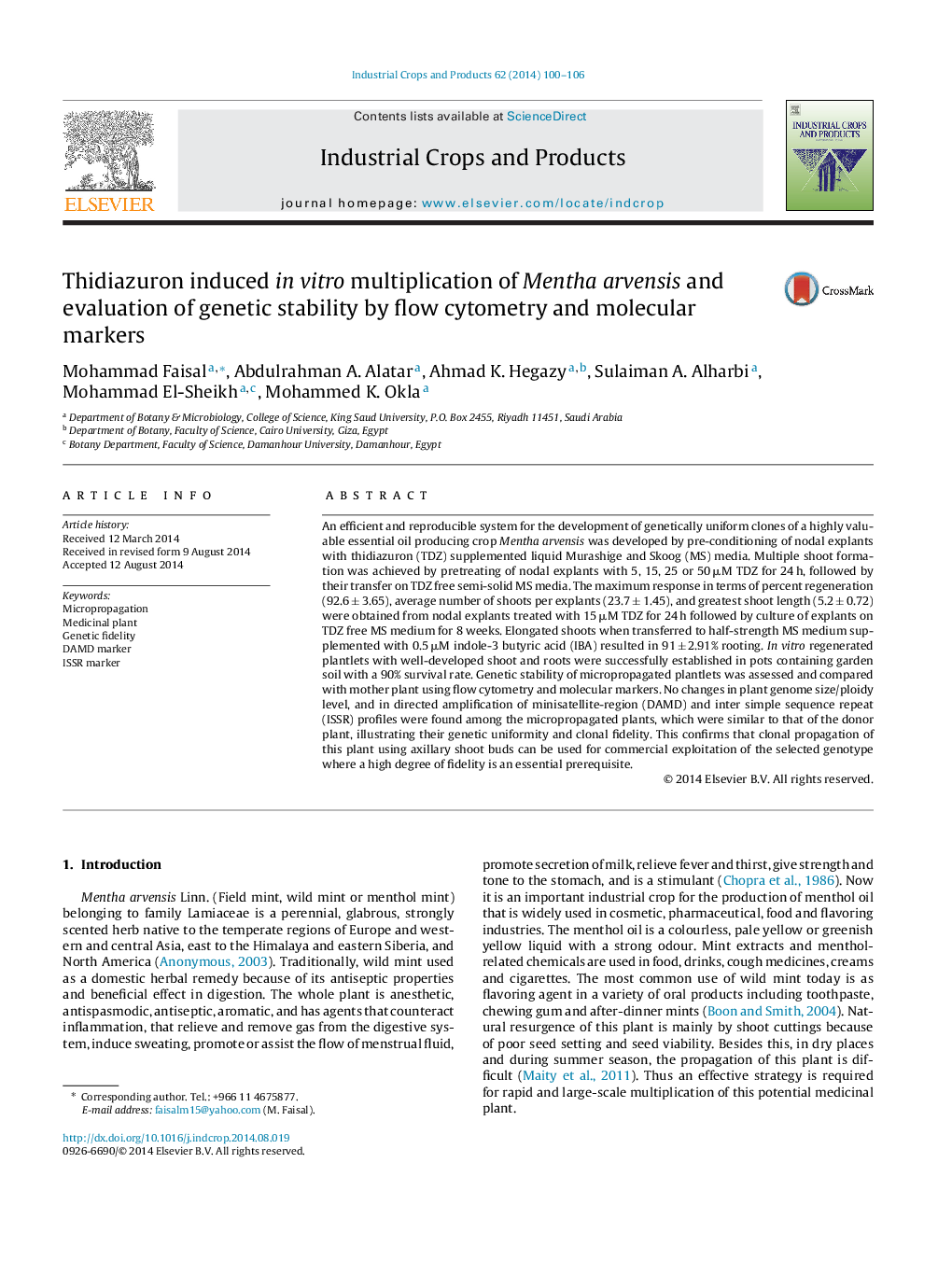| Article ID | Journal | Published Year | Pages | File Type |
|---|---|---|---|---|
| 6376539 | Industrial Crops and Products | 2014 | 7 Pages |
Abstract
An efficient and reproducible system for the development of genetically uniform clones of a highly valuable essential oil producing crop Mentha arvensis was developed by pre-conditioning of nodal explants with thidiazuron (TDZ) supplemented liquid Murashige and Skoog (MS) media. Multiple shoot formation was achieved by pretreating of nodal explants with 5, 15, 25 or 50 μM TDZ for 24 h, followed by their transfer on TDZ free semi-solid MS media. The maximum response in terms of percent regeneration (92.6 ± 3.65), average number of shoots per explants (23.7 ± 1.45), and greatest shoot length (5.2 ± 0.72) were obtained from nodal explants treated with 15 μM TDZ for 24 h followed by culture of explants on TDZ free MS medium for 8 weeks. Elongated shoots when transferred to half-strength MS medium supplemented with 0.5 μM indole-3 butyric acid (IBA) resulted in 91 ± 2.91% rooting. In vitro regenerated plantlets with well-developed shoot and roots were successfully established in pots containing garden soil with a 90% survival rate. Genetic stability of micropropagated plantlets was assessed and compared with mother plant using flow cytometry and molecular markers. No changes in plant genome size/ploidy level, and in directed amplification of minisatellite-region (DAMD) and inter simple sequence repeat (ISSR) profiles were found among the micropropagated plants, which were similar to that of the donor plant, illustrating their genetic uniformity and clonal fidelity. This confirms that clonal propagation of this plant using axillary shoot buds can be used for commercial exploitation of the selected genotype where a high degree of fidelity is an essential prerequisite.
Related Topics
Life Sciences
Agricultural and Biological Sciences
Agronomy and Crop Science
Authors
Mohammad Faisal, Abdulrahman A. Alatar, Ahmad K. Hegazy, Sulaiman A. Alharbi, Mohammad El-Sheikh, Mohammed K. Okla,
